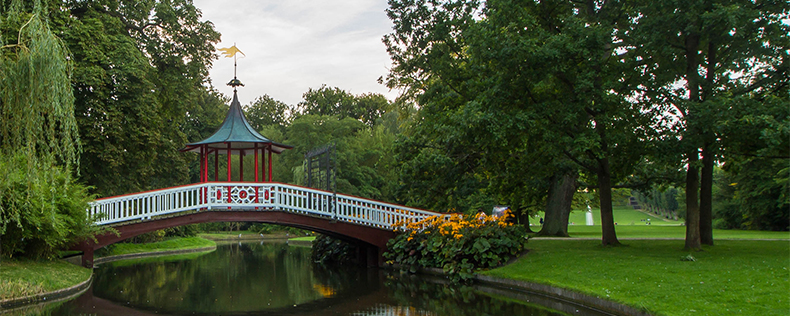Copenhagen and Stockholm are relatively safe cities, and they are safer on many measures than other European or American cities. However, they are still cities, and cities that are foreign to you. Therefore, you must take precautions for your own safety and security. Further, in a new culture, it is more challenging to correctly assess risks and read situations than at home.
Abiding Local Laws
During your time abroad, be aware that local laws and penalties apply to you. If you break local laws in Denmark, Sweden, in other places while on study tour, or in any country you visit during your DIS term, your passport won’t help you avoid arrest or prosecution. More information for U.S. citizens can be found here.
Tips for Staying Safe
Prepare
- Learn about the culture and political environment in Sweden and Denmark, as well as any country you visit. Explore the perceptions of Americans and people of diverse backgrounds. This situational awareness will help you to reduce your risk exposure
- Make copies of your credit cards, passport, and other important documents. Keep these in a safe place to expedite cancellation and replacement in the event they are lost or stolen
- Avoid public or political demonstrations
- Drink responsibly and do not use illegal substances
- Marijuana available in Europe is typically different from the U.S. with higher levels of TCH and no regulations for the users’ safety. As a result, DIS students have recently had very serious reactions to marijuana use, including drug induced psychosis and hospitalization.
- IMPORTANT: Illegal drug use may lead to immediate dismissal from the program and the country.
- Save the DIS electronic contact card to your phone. More details will be sent to enrolled students
In the Moment
- Be aware of the people and circumstances around you and report any suspicious behavior to DIS staff or the police
- Be careful about divulging information about yourself and your classmates to strangers. This includes information about where you live
- Avoid drawing unnecessary attention to yourself through dress or action
- Do not leave your bags or valuables unattended and do not transport/assist with a package or suitcase for anyone
- In case of emergency while in Europe, call 112 to contact local police
- If you experience any type of sexual violence, including relationship violence, while on the DIS program, please know that you have options and support available to you. More information can be found within the Sexual Violence page.
In General
- Follow the advice of local authorities, DIS, and the U.S. Department of State
- Trust your instincts. If a situation feels unsafe, speak up or remove yourself. Your safety is more important than hurting someone’s feelings!
Bias Incidents
Although we hope that you have not experienced a bias-related incident or discrimination, we do know that bias situations can occur within our community and in Copenhagen and Stockholm.
DIS takes bias incidents and discrimination very seriously, so we developed a tool for you to inform us about bias-related incidents involving you or another DIS student, whether at DIS or in the public. With this information, DIS can properly understand, address inappropriate and unwelcome behavior, and take the opportunity to educate our community.
View more information here:
We welcome any questions or feedback that you may have about this resource. Please email bias@disabroad.org if you have any suggestions.
How to Prevent Pick-Pocketing
Throughout Scandinavia, there is a low crime rate compared to many other places in the world. However, in Stockholm and Copenhagen, petty crime such as pickpocketing and bag snatching continues to increase, especially in tourist areas and during the summer months. To reduce the opportunity for pick-pocketing:
- Stay alert in crowded places, on the pedestrian street, metros, trains and buses and tourist attractions
- Choose a bag that can close with a zipper and avoid putting valuables in a backpack, which you cannot keep an eye on
- React if someone bumps into you – check your belongings and write down a description of the person if something is missing
- Carry only what you really need. Ask yourself if all the valuables you are carrying are necessary. If not, leave your things in a safe location
Minimize the Risk of Bicycle Theft
- Always lock your bike and make sure you can lock it to a stationary object (pole, bike rack, etc)
- Avoid leaving your bike at major transportation stations
- If your bike has a wheel lock, use a secondary external lock
Keep Your Home Safe
Remember to secure your residence! It does not happen often, but occasionally DIS students experience a break-in.
Tips to Minimize the Risk of a Break-in
- Always lock your door! This includes locking your door when you’re heading to the common room or to do laundry
- Do not leave valuables sitting out in the open, including your computer. Hide valuables in a closet or somewhere that is not easily accessible
- Close & lock your windows: Opening windows is a common practice in Scandinavia to air out your room, but while you are out, they should be closed
- Never leave a spare key outside your room or apartment. If you need to give a key to a roommate or visitor, arrange for them to pick up at DIS, from a neighbor, or another secure source
When Traveling
- Make it look like someone is home. Leave your lights, curtains, and room as they are when you are not traveling
- Do not announce travel on your social media networks. Even if your privacy settings are very controlled, wait to post travel update and photos until you have returned
